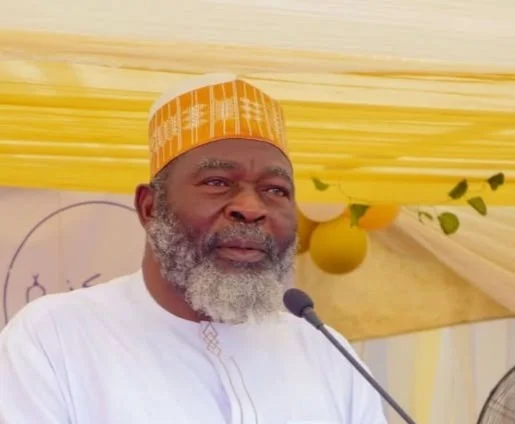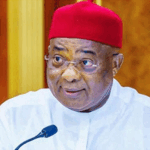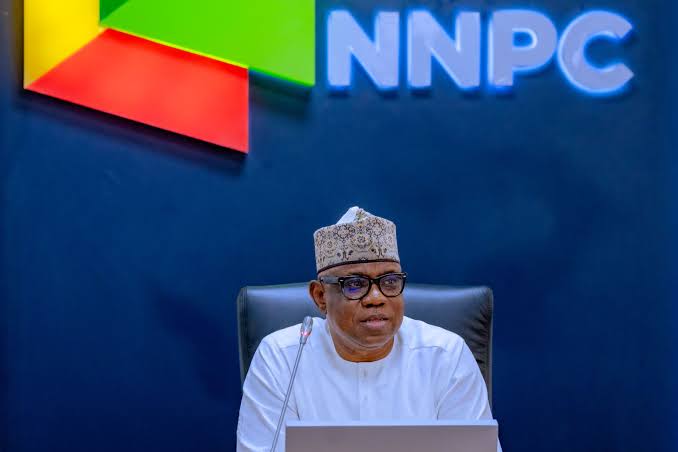Tinubu; ‘The Last Man Standing’

By Bamidele Atoyebi
Undoubtedly, Tinubu’s political identity is a metaphor for endurance in the face of overwhelming odds, and a rallying phrase for those who see politics not merely as survival, but as consistency of purpose.
The phrase “The Last Man Standing” resurfaced again in an old video featuring Dele Alake, the then Commissioner for Information and Strategy in Lagos State praising Bola Ahmed Tinubu for his resilience during one of the most turbulent periods in Nigeria’s democratic history.
The video was recorded in the early 2000s when Tinubu was Governor of Lagos State. The April 2003 general elections had just ended and the ruling People’s Democratic Party (PDP), under President Olusegun Obasanjo, swept nearly all the southwestern states.
Before that election, seven governors belonged to the Alliance for Democracy (AD). By the end of it, six had been defeated by the PDP’s federal influence.
Tinubu alone refused to bend, declaring that Nigeria must never become a one-party state. He stood as the last governor of the AD, the last visible counterforce in a region that had been politically conquered.
Hence, the name “The Last Man Standing” by Dele Alake, a man popularly known as the president’s close pal.
That description was not a casual compliment; it was born out of a defining moment in Nigeria’s political evolution.
Interestingly, the glory of the origin of the name was almost passed to another after a video showing businessman Tony Elumelu referring to Tinubu by the same phrase surfaced on the Internet.
Younger Nigerians, especially the Gen Z were. Quick ago l had coined the expression, unaware that it had deep historical roots tied to Tinubu’s defiance two decades ago.
The rediscovery of Alake’s older footage has since corrected that impression, and rekindled discussions about political loyalty, courage, and longevity.
Beyond the symbolism, the relationship between Tinubu and Dele Alake illustrates something often missing in Nigerian politics: sustained trust built over shared history and values.
Alake’s enduring closeness to the president is not a product of convenience or political calculation; it stems from years of shared struggle and mutual understanding.
During Tinubu’s presidential campaign, Alake played a central role in shaping the communication strategy that helped define the candidate’s message of resilience and reform.
Many observers expected him to emerge as Minister of Information, yet the president instead entrusted him with the Ministry of Solid Minerals Development, a portfolio long neglected but vital to Nigeria’s economic diversification.
That appointment was a clear signal of trust, reflecting Tinubu’s confidence in Alake’s competence and loyalty.
The renewed attention around “The Last Man Standing” should remind Nigerians of the cost of conviction in a system where compromise often comes easily. It symbolizes a moment in history when Tinubu chose principle over pressure, standing firm when it was politically safer to fold.
Two decades later, the phrase has outlived its original context to become part of Tinubu’s political identity.
Whether one agrees with his politics or not, the story of “The Last Man Standing” is a reflection on what it means to stay true to one’s convictions in Nigeria’s unpredictable political climate.
To conclude with, Dele Alake has always spoken of President Tinubu with deep conviction, often highlighting his courage, selflessness, generosity, and capacity to take tough but necessary decisions long before mentioning anything about himself or ministry, demonstrating absolute loyalty.
It is this steadfast admiration, grounded in years of shared service and belief in progressive leadership, that gives greater meaning to his words from decades ago.
Bamidele Atoyebi is the Convenor of BAT Ideological Group, National Coordinator of Accountability and Policy monitoring and a publisher at Unfiltered and Mining Reporting.








